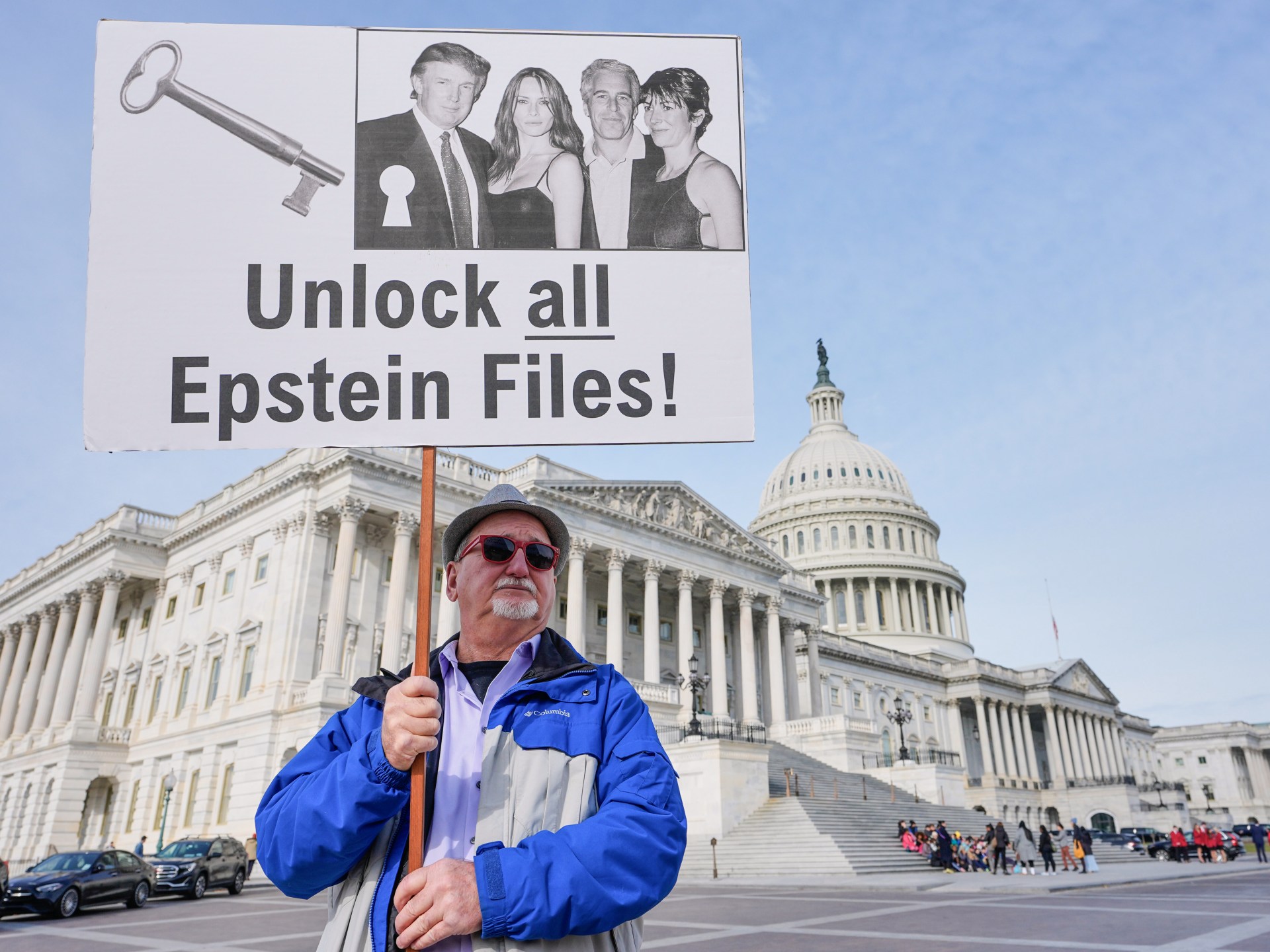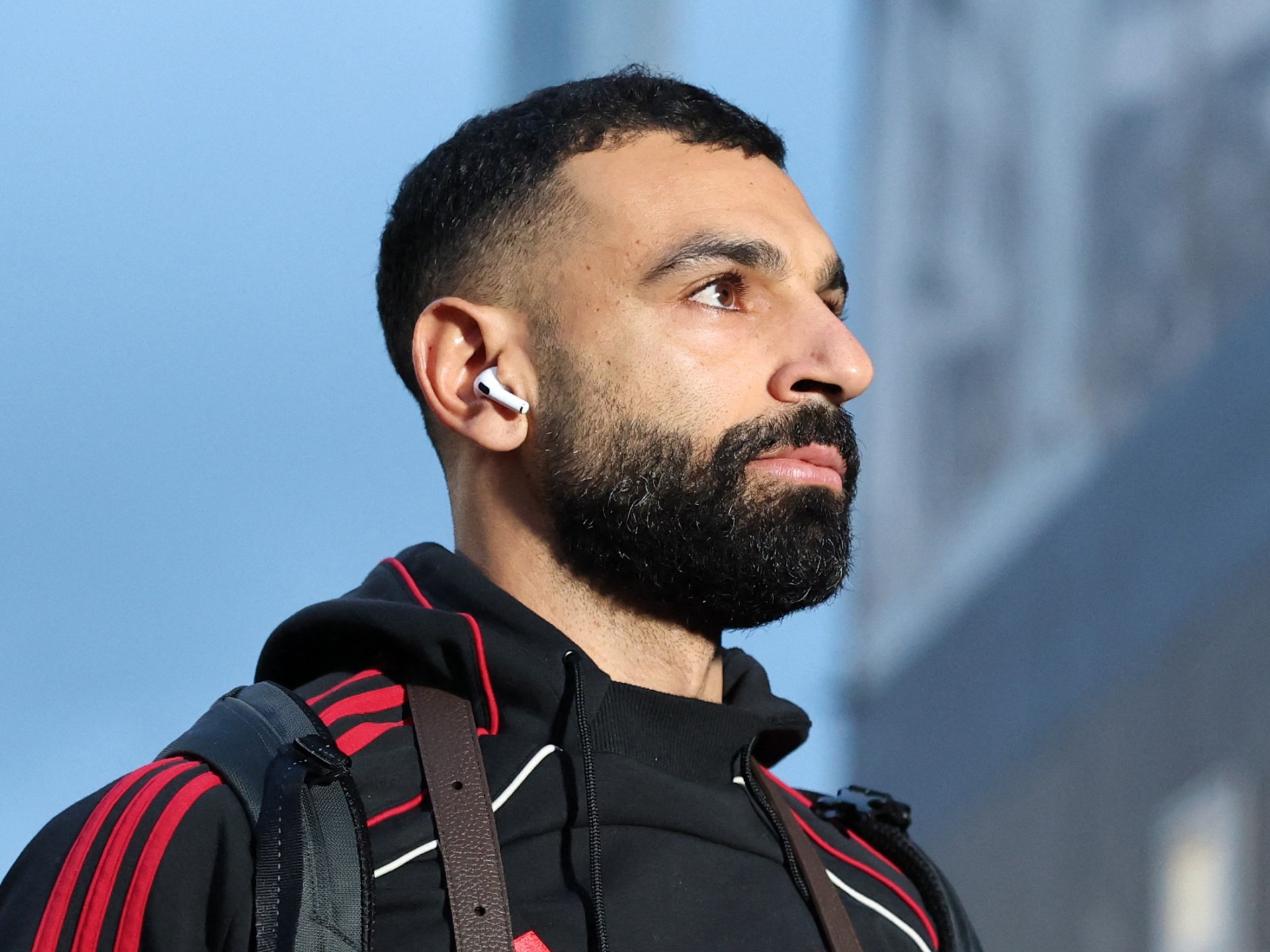A United States federal judge has ruled that the Department of Justice can release grand jury documents from the sex trafficking case of Ghislaine Maxwell, the former girlfriend of disgraced sex offender Jeffrey Epstein.
District Judge Paul Engelmayer said on Tuesday that he would allow the publication of the documents but cautioned that there is little new information in them.
Recommended Stories
list of 3 itemsend of list
“They do not discuss or identify any client of Epstein’s or Maxwell’s,” Engelmayer wrote. “They do not reveal any heretofore unknown means or methods of Epstein’s or Maxwell’s crimes.”
Grand jury materials often contain court transcripts: They do not represent the full investigative file the Department of Justice may have.
Generally, they are sealed to protect witness testimony and ensure the fair administration of justice, since grand juries often decide whether or not a case proceeds to trial.
But a new law has allowed Epstein-related files — even secret grand jury materials — to be released to the public.
In November, the US Congress passed the Epstein Files Transparency Act, which creates an exemption to the secrecy surrounding grand jury materials.
That law was signed by US President Donald Trump, who has faced scrutiny over his own relationship with the late Epstein, a financier who died by suicide in 2019.
Trump initially urged Republican lawmakers to reject the law, despite growing calls for greater transparency.
But in mid-November, he reversed course, calling on congressional Republicans to vote in favour of the act. “We have nothing to hide,” Trump wrote on Truth Social at the time.
The Trump administration had previously petitioned to unseal grand jury documents related to Epstein in July, but those requests were denied.
Some legal experts at the time called Trump’s petitions a “distraction” and warned that the grand jury transcripts were unlikely to reveal the full breadth of the government’s investigation into Epstein.
Engelmayer appeared to echo that assessment in Tuesday’s ruling. He noted that the grand jury materials “do not identify any person other than Epstein and Maxwell as having had sexual contact with a minor”.
He is the second judge to allow the publication of Epstein-related grand jury materials following the passage of the Epstein Files Transparency Act.
His ruling follows a similar decision by a judge in Florida last Friday allowing for the release of grand jury transcripts.
Earlier this year, Engelmayer had rejected a Trump administration request to publish grand jury materials, citing the strict legal protections surrounding grand jury proceedings.
But some survivors of Epstein’s crimes have said full transparency is necessary.
Speaking to The Associated Press through her lawyer Sigrid S McCawley, one of Epstein’s accusers, Annie Farmer, said she is “is wary of the possibility that any denial of the motions may be used by others as a pretext or excuse for continuing to withhold crucial information concerning Epstein’s crimes”.
Some officials have expressed reluctance about releasing unfiltered Epstein files, citing the risks to victims.
In Tuesday’s decision, Engelmayer addressed that concern and required US Attorney Jay Clayton to review all grand jury materials before their release, to ensure no victims would have their privacy violated.
Maxwell’s legal team, meanwhile, has argued that releasing the grand jury transcripts would be prejudicial to their client. She is currently serving a 20-year sentence for her role in Epstein’s sex-trafficking operation.
A November Reuters/Ipsos poll found that just 20 percent of people in the US approve of Trump’s handling of matters related to Epstein, with whom he enjoyed a close relationship for years.
The poll found that 70 percent of people believe that the government is covering up information about Epstein’s alleged “client list”, detailing his relationships with powerful figures.
The case has become a stand-in for the belief that political and economic elites enjoy a sense of impunity and suffer few consequences for their crimes.






